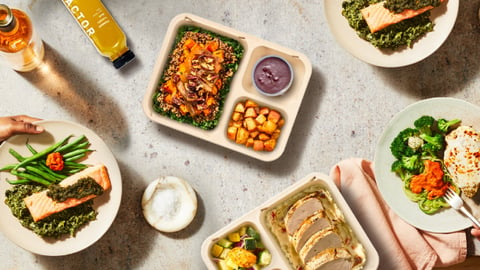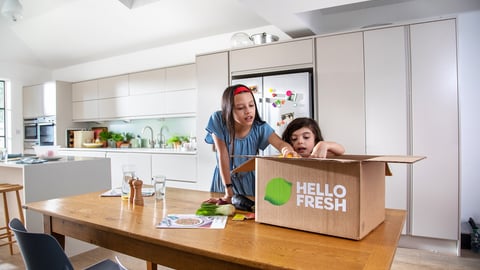HelloFresh commits to ambitious carbon reduction goals
After achieving a FY22 revenue milestone, meal kit provider HelloFresh has released its annual “2022 Sustainability Report” (Non-Financial Report) and revealed a new commitment to set science-based emissions reduction targets.
“As the world’s largest meal kit company, we recognize the important contribution we can and must make in driving sustainable progress on environmental and social issues. Setting ourselves science-based targets means we are committed to doing our part for the environment to limit global warming to 1.5 degrees or less, which marks a big milestone for HelloFresh," said Thomas Griesel, co-founder of HelloFresh, in a statement.
The Science Based Targets initiative (SBTi) is a global body enabling businesses to set ambitious emissions reduction targets in line with the latest climate science and Paris Agreement goals. HelloFresh will work with SBTi to develop and validate its targets before the end of 2024.
As mentioned in its sustainability report, HelloFresh continues to make operations more energy-efficient and to transition to renewable energy. The share of green energy consumed in HelloFresh’s distribution centers and offices in 2022 increased to 53%, from 50% in 2021 and 35% in 2020.
HelloFresh’s continued efforts in 2022 led to a 50% reduction in carbon emissions from its meal kit production facilities per euro revenue compared with a 2019 baseline, which means that the company almost met its ambitious goals for 2022 of a 60% reduction.
Regarding food waste, more than 26 million pounds of unsold edible food was donated to charities in 2022. Compared with a 2019 baseline, the company managed to reduce the food waste sent to landfill or incineration from all meal kit facilities by 42%, which means that the company almost met its ambitious goals for 2022 of a 50% reduction.
Going forward, HelloFresh has established separate environmental goals for each of its business verticals:
Meal Kit Business
- Reduce the emissions from the HelloFresh Group’s meal kit production facilities by 66% per euro revenue from a 2019 baseline by the end of 2025
- Reduce food waste from the HelloFresh Group’s meal kit production facilities by 52% per euro revenue from a 2019 baseline by the end of 2025
Other Businesses (represented by ready-to-eat vertical)
- Reduce the emissions from HelloFresh’s other businesses’ production facilities by 30% per euro revenue from a 2021 baseline by the end of 2025.
- Reduce food waste from HelloFresh’s other businesses’ production facilities by 56% per euro revenue from a 2021 baseline by the end of 2025.



